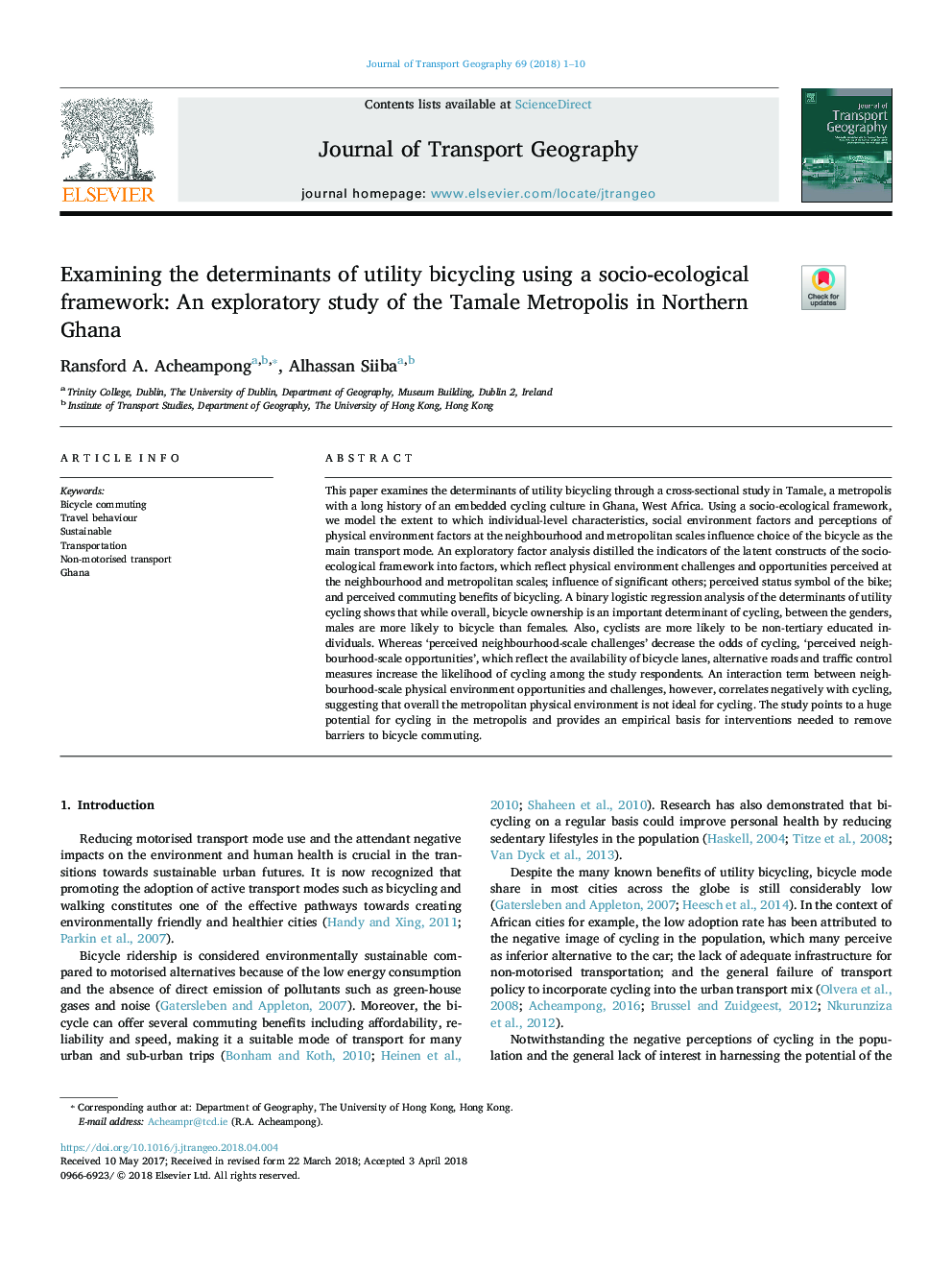| کد مقاله | کد نشریه | سال انتشار | مقاله انگلیسی | نسخه تمام متن |
|---|---|---|---|---|
| 7485027 | 1485398 | 2018 | 10 صفحه PDF | دانلود رایگان |
عنوان انگلیسی مقاله ISI
Examining the determinants of utility bicycling using a socio-ecological framework: An exploratory study of the Tamale Metropolis in Northern Ghana
ترجمه فارسی عنوان
بررسی عوامل تعیین کننده دوچرخه سواری با استفاده از یک چارچوب اجتماعی-اکولوژیک: یک مطالعه اکتشافی از شهر تالما در شمال غنا
دانلود مقاله + سفارش ترجمه
دانلود مقاله ISI انگلیسی
رایگان برای ایرانیان
کلمات کلیدی
رفت و آمد دوچرخه، رفتار مسافرت، پایدار، حمل و نقل، حمل و نقل غیرمتمرکز، غنا،
موضوعات مرتبط
علوم زیستی و بیوفناوری
علوم محیط زیست
علوم زیست محیطی (عمومی)
چکیده انگلیسی
This paper examines the determinants of utility bicycling through a cross-sectional study in Tamale, a metropolis with a long history of an embedded cycling culture in Ghana, West Africa. Using a socio-ecological framework, we model the extent to which individual-level characteristics, social environment factors and perceptions of physical environment factors at the neighbourhood and metropolitan scales influence choice of the bicycle as the main transport mode. An exploratory factor analysis distilled the indicators of the latent constructs of the socio-ecological framework into factors, which reflect physical environment challenges and opportunities perceived at the neighbourhood and metropolitan scales; influence of significant others; perceived status symbol of the bike; and perceived commuting benefits of bicycling. A binary logistic regression analysis of the determinants of utility cycling shows that while overall, bicycle ownership is an important determinant of cycling, between the genders, males are more likely to bicycle than females. Also, cyclists are more likely to be non-tertiary educated individuals. Whereas 'perceived neighbourhood-scale challenges' decrease the odds of cycling, 'perceived neighbourhood-scale opportunities', which reflect the availability of bicycle lanes, alternative roads and traffic control measures increase the likelihood of cycling among the study respondents. An interaction term between neighbourhood-scale physical environment opportunities and challenges, however, correlates negatively with cycling, suggesting that overall the metropolitan physical environment is not ideal for cycling. The study points to a huge potential for cycling in the metropolis and provides an empirical basis for interventions needed to remove barriers to bicycle commuting.
ناشر
Database: Elsevier - ScienceDirect (ساینس دایرکت)
Journal: Journal of Transport Geography - Volume 69, May 2018, Pages 1-10
Journal: Journal of Transport Geography - Volume 69, May 2018, Pages 1-10
نویسندگان
Ransford A. Acheampong, Alhassan Siiba,
